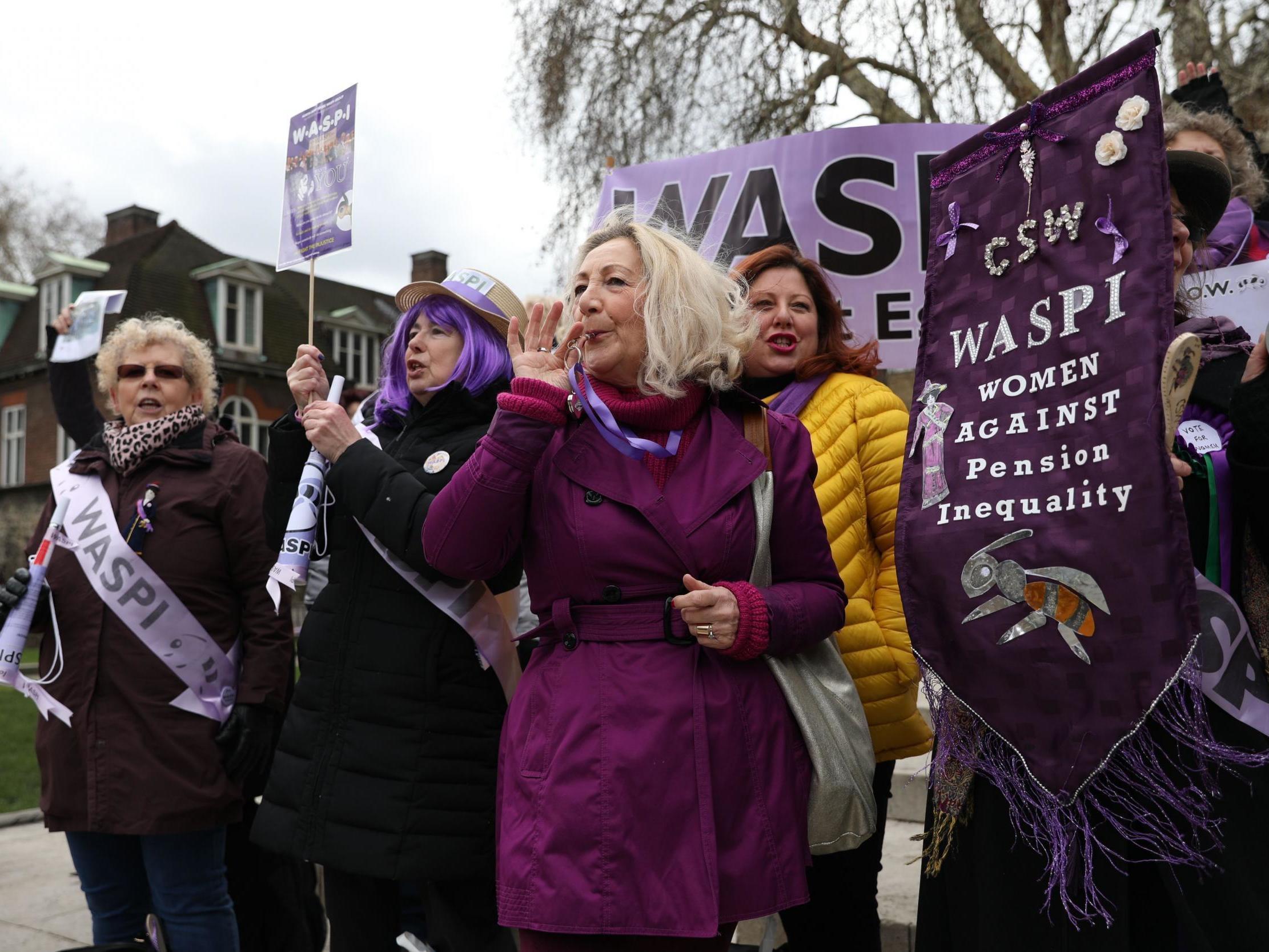BackTo60: Why has the state pension age for women changed and what does the new appeal mean?
Case is returning to court for an appeal on Tuesday 21 July

The state pension age for women born in the 1950s is increasing. Since 2010, the age at which women qualify for state pension has risen from 60 to 65 years old.
However, many have expressed their concerns over the changes, giving rise to movements such as the BackTo60 and Women Against State Pension Inequality (WASPI) which claim the increase has been made unfairly.
The changes impact approximately 3.8 million women born in the fifties, with many saying they were not given sufficient notice to bolster savings to make up the shortfall in state pension.
The issue was brought to court last year by Julie Delve and Karen Glynn - both in their 60s.
But, in October 2019 it was ruled that the change was not discriminatory and their case against the government was dismissed.
Now, they have escalated the case to the Court of Appeal, where they will appear on 21 July 2020. But, what does it mean? Here is everything you need to know.
What is state pension?
The state pension is a regular payment given to those of a certain age by the British government.
This payment is intended to ensure that everyone has a solid base upon which to retire and to assist in financially supporting them.
State Pension is funded through national insurance contributions and eligibility is contingent on one’s own contributions.
For this reason, not everyone is entitled to a state pension and you must meet the following requirements to receive it:
- Work in the UK
- Have reached state pension age
- Made national insurance contributions for 35 years, if you qualify after April 2016
- Either pay voluntary NI or be credited with them from the government if you are not in work
What is the court case about?
The retirement age for women was increased from 60 to 65, in line with that of men, in November 2018.
Plans to increase the state pension age were first announced in the Pension Act 1995 but these changes were accelerated as part of the Pension Act 2011.
The changes affected around 3.8 million women born in the 1950s, with many stating they were not given sufficient notice to prepare for up to six years without their state pension.
In 2019, Julie Delve and Karen Glynn took the Department for Work and Pensions (DWP) to court and claimed that the changes were discriminatory on the grounds of sex and age.
However, on 3 October the High Court ruled that the increase in the state pension age was not discriminatory, as the women had claimed.
The court rejected the argument that the legislation breached the European Convention on Human Rights, on the “basis of case law which establishes that a state can introduce a new legislative scheme which effects changes from a given date based on age”.
The judges also concluded that there was no direct discrimination on grounds of sex, because “this legislation does not treat women less favourably than men in law, rather it equalises a historic asymmetry between men and women, and thereby corrects historic direct discrimination against men”.
Why is the case going to the Court of Appeal?
After being disappointed by the result of the court case, Ms Delve and Ms Glynn, along with the support of campaign group BackTo60 decided to continue their legal battle.
In January, the women were granted permission to appeal the High Court result, which will take place in London over the course of two days beginning on 21 July.
Joanne Welch, the founder of BackTo60, previously told The Independent they were confident about the appeal.
“When they were robbed of the state pension with virtually no notice from the government, some of the women’s lives were annihilated and that is no exaggeration,” she adds.
“But when the pandemic hit, 1950s women were forced out on to the frontline. Many work in retail, hospitality, cleaning and care homes. We know women are facing homelessness and destitution. They have no choice not to work because they are not entitled to sufficient benefits. There are some workplaces where risk assessment not in place.”
She continued: “Women feel abandoned. They tell us they were robbed and now they are abandoned amid a pandemic. I would have never got involved in this if I didn’t believe it was an injustice. I’ve never done anything like this in my life.”
What do BackTo60 hope the outcome will be?
BackTo60 is looking to get full repayment for the years of pension that millions women have lost out on as a result of the recent changes.
You can read more about the BackTo60 campaign here.
Join our commenting forum
Join thought-provoking conversations, follow other Independent readers and see their replies
Comments
Bookmark popover
Removed from bookmarks